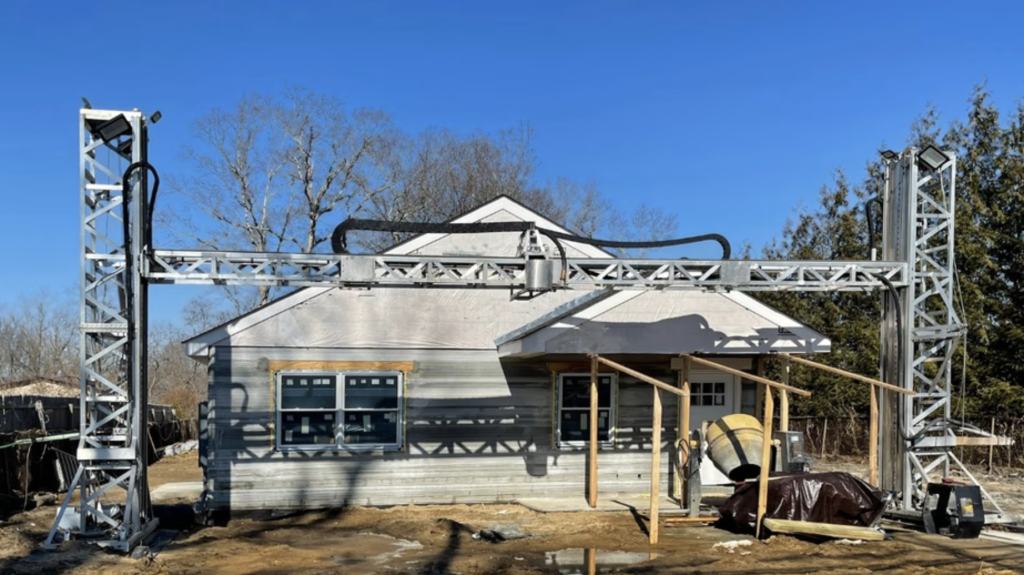Today’s mortgage headlines are packed with policy shifts and innovation, starting with the long-awaited signing of the Trigger Bill, putting a stop to unsolicited borrower solicitations. Meanwhile, 46 independent mortgage banks rally to prevent a Fannie-Freddie merger, arguing it would undercut smaller lenders. And in Houston, 3D-printed homes are turning heads as a real solution to affordable, sustainable housing. Whether you’re in lending, real estate, or just housing-curious, this week’s updates matter for how we work, sell, and live.
Trigger Bill Signed Into Law, Banning Most Trigger Leads
Read the Full Story → MPAMAG
On September 5, 2025, President Trump signed the Trigger Bill—officially called the Homebuyers Privacy Protection Act—into law. Starting March 5, 2026, credit bureaus will be restricted from selling consumer mortgage credit data, commonly known as trigger leads, without the consumer’s permission or unless it’s their current mortgage company making the offer.

The law is a major win for loan officers, many of whom have long criticized the practice as deceptive and predatory. Organizations like the National Association of Mortgage Brokers and the Independent Community Bankers of America backed the legislation, applauding its consumer-first approach.
With the Trigger Bill becoming law, mortgage professionals will need to lean harder into relationship-building and trusted partnerships—less robo-dialing, more real conversations.
Independent Lenders Oppose Fannie-Freddie Merger
Read the Full Story → Scotsman Guide
A group of 46 independent mortgage banks has formally opposed the idea of merging Fannie Mae and Freddie Mac. The move came in a signed letter to FHFA Director Bill Pulte and Treasury Secretary Scott Bessent, urging them to maintain competition between the two entities.

The letter warns that combining the GSEs under a proposed “Great American Mortgage Corporation” model would reduce lender choice, diminish access for smaller IMBs, and harm borrower pricing. These smaller lenders are especially concerned about losing the pricing power and cash window access that keeps them competitive.
By keeping Fannie and Freddie separate, advocates argue we can maintain a healthy, diversified lending ecosystem—one that serves more communities, not fewer.
3D-Printed Homes Bring Affordability and Innovation to Houston
Read the Full Story → Realtor.com
In Houston, a new development called Zuri Gardens is building 80 homes using 3D-printing technology from Hive 3D and partners. With prices in the high $200,000s and up to $125,000 in down payment assistance available, this project is redefining what affordable housing looks like.

Each home offers modern layouts—2 beds, 2.5 baths, office space, and a covered patio—all in about 1,360 square feet. Beyond affordability, these homes are being praised for energy efficiency, durability, and their ability to stand up to extreme weather conditions.
As the housing market looks for scalable solutions to the affordability crisis, 3D-printed construction is emerging as a serious contender—not a novelty.
The Data Advocate
This week, I’m sharing a must-watch video from The Data Advocate featuring Tristan Ahumada, Saul Klein, and John Reilly. It’s one of the best breakdowns of the legal and economic shifts happening in real estate right now—timely, relevant, and packed with clarity.
They dig into why buyer agent commissions didn’t crash post-settlement (in fact, many went up), what’s really going on with the NAR vs DOJ conflict, and how lawsuits like Sitzer and Gibson could reshape the future of agent compensation and MLS structures.
The conversation also covers the RealPage case and the growing competition in the MLS and listing space. If you’re a broker, agent, or just trying to stay informed, this isn’t doom—it’s your heads-up on where the puck is headed. Definitely worth your time.
Loan Officer Perspective
The Trigger Bill is a big deal. It shifts the game from noisy marketing to meaningful relationships. That means your personal brand and referral network matter more than ever. Use this as an opportunity to double down on trust-based growth.
The GSE battle is something to watch closely. Should Fannie and Freddie stay separate, access to competitive products and fair pricing stays strong—especially important for smaller shops. That’s a win for consumers, and a win for you.
And if you’re in Texas—or watching trends—those 3D homes hint at a future where affordability doesn’t mean cutting corners. Lenders who understand these new builds early can guide more buyers into ownership.
Real Estate Agent Perspective
Agents now have a powerful new talking point: clients’ information will be better protected thanks to the Trigger Bill. No more buyers complaining about being bombarded after a credit pull—this builds confidence in the process you walk them through.
The GSE drama may feel like background noise, but it affects product availability and the overall cost to borrow. Staying current helps you advise with clarity and confidence.
And those 3D homes? They’re not just cool—they’re proof that innovation can create high-quality, budget-friendly listings. That’s a message today’s affordability-focused buyers want to hear.
Home Buyer & Seller Perspective
If you’re buying a home, the new Trigger Bill means fewer surprise calls and more control over your personal information. That’s a win for your peace of mind.
Policy debates like the Fannie-Freddie merger might sound like D.C. jargon, but they impact the mortgage options available to you—and how competitive those options are.
And in places like Houston, 3D-printed homes are showing how design, technology, and affordability can come together. If you’re curious about what this means for your home goals, contact the real estate or mortgage pro who shared this post—they’d love to help.
Powered by: Mortgage Marketing Animals
Important Links

